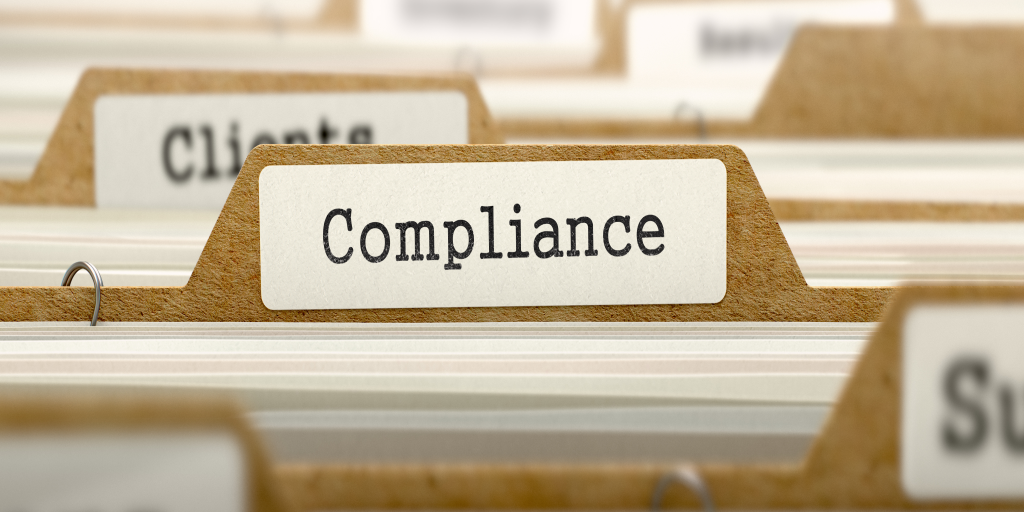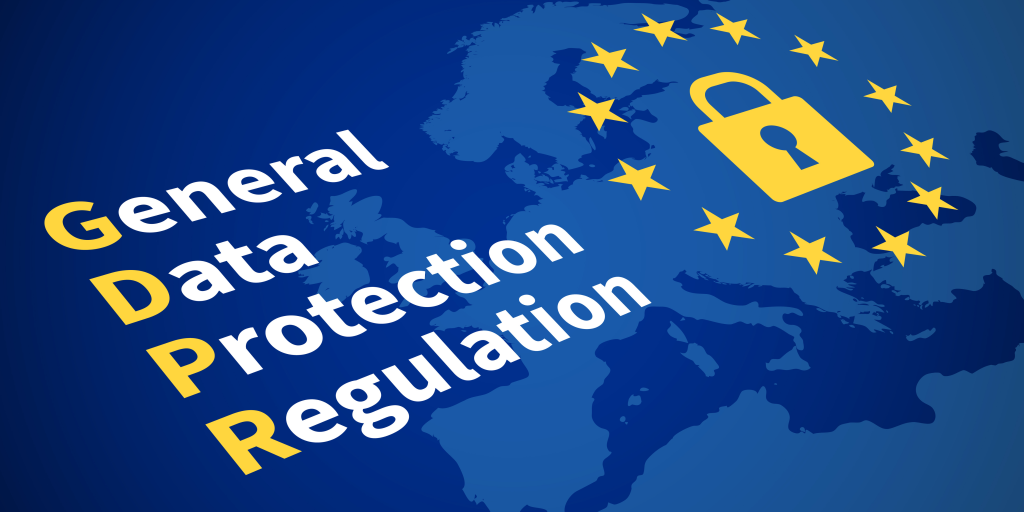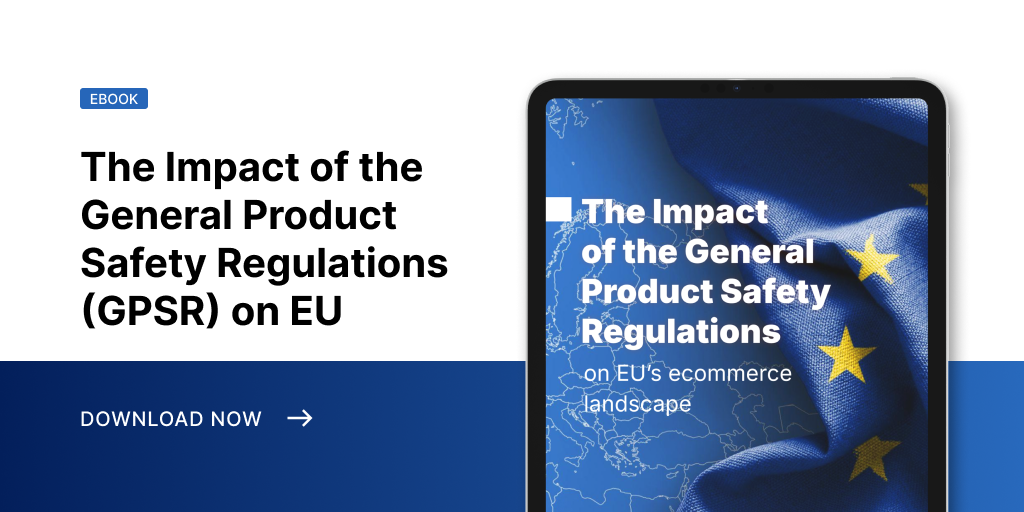European countries have long been attractive destinations for digital retailers. The number of shoppers on the Union’s online marketplace has steadily increased for over a decade, rising from 235 million in 2019 to 326 million in 2024.
The latest statistics show that online shopping is more popular than ever in the EU. In 2024, 77% of the population that used the internet purchased products online.
However, the EU’s online marketplaces are among the most regulated in the world, meaning that sellers must meet various compliance standards before they can start selling their products in Germany, France, or another EU country.
Non-compliance with the block’s regulations can have severe consequences for sellers on digital marketplaces like Amazon or eBay, ranging from listing removal to account suspension and hefty fines.
The communication from the EU Commission to the EU Parliament, a twenty-page document released in February 2025, stresses the importance of strengthening the Union’s product compliance regulations for creating a safe, sustainable, and fair ecommerce environment throughout the block.
Let’s examine the EU’s product compliance requirements and some of the most relevant regulations online sellers must follow when selling on European digital markets.
Overview of the EU’s product compliance requirements

Manufacturers, importers, and distributors must go down different paths to bring a product to an EU digital market.
Aside from their position in the supply chain, the list of compliance requirements different economic operators must meet before placing a product on the EU market depends on the product type and whether a business is the product’s distributor or its manufacturer.
The good news is that after a product is approved for sale in one country, online sellers can offer it on all other markets within the EU.
Member states can restrict market access for individual products already approved for sale in other countries if it doesn’t comply with their health, safety, or environmental standards.
Online sellers who want to place products they manufacture on the EU markets must meet the following requirements:
- Conduct a conformity assessment
- Create the EU declaration of conformity
- Check if the block’s harmonized standards apply to the product in question
- Determine if the CE marking is necessary for the product
- Create and translate the product’s technical documentation
- Prepare the document containing safety information and user instructions in the market’s local language.
- Meet the traceability requirements
- Ensure the product comes with the required markings and labels
Under the EU law, a distributor is ‘a legal person in the supply chain who makes a product available on the EU market that they have acquired from a supplier such as a manufacturer, an importer or another distributor.’
According to this definition, retailers and wholesalers are also distributors, and as such, they’re responsible for:
- Checking if a product has the CE markings or proper labels
- Supply the technical documentation and EU declaration of conformity
- Ensure that all documents are accurately translated into the market’s local language
It’s also worth adding that sellers on eBay, Amazon, or other online marketplaces must ensure that their product listings contain the necessary information, such as the product identification data or the manufacturer’s or EU Responsible Person’s contact details.
Guide through relevant regulations for online sellers in the EU
A profound understanding of product compliance requirements is paramount for your online store’s success, whether you’re an established seller on the European marketplaces or just considering expansion opportunities for your brand.
However, the long list of EU laws and regulations that online sellers must comply with can be overwhelming. Let’s look at some of the most important regulations and directives sellers must follow when placing products on online marketplaces in the EU.
General Data Protection Regulation

Sellers must follow the Union’s strict data security laws.
Even though Amazon, eBay, and other marketplace providers in the EU have their own privacy policies, businesses that place their products on European markets through these platforms must take steps to ensure their compliance with the GDPR.
These steps include but are not limited to:
- Establishing a lawful basis for data collection and processing by obtaining consent or only collecting data to fulfill contractual obligations
- Enforce data minimization by collecting only the information necessary to complete a transaction.
- Foster transparency by making the online business’s privacy policy easily accessible to buyers.
- Allow customers to withdraw their consent and practice their right to be forgotten
Online companies that fail to comply with GDPR can face fines of up to 20 million euros or 4% of their global turnover.
General Product Safety Regulations
The EU’s GPSR is a unified safety network with a specific focus on online marketplaces. As a result, all marketplace providers must collaborate with the Union’s market surveillance authorities to ensure that all products on online marketplaces meet the safety standards.
These regulations, also outline the requirements manufacturers and distributors that don’t have a legal representative in the EU must meet in order to place their products on the Union’s digital marketplaces.
Here are some of the key requirements online sellers based outside of the EU must meet to start selling on the block’s digital markets:
- Appoint an EU Responsible Person
- Obtain technical documentation for all products they offer on EU markets and translate it to the local languages.
- Ensure that all safety information is included on the product or its packaging
Update all product listings to include product identifiers, EU Responsible Person’s contact information, and other relevant data.

Download our guide to GPSR to ensure compliance for all your products!
Digital Product Passport
Although it still hasn’t affected most online sellers, the emergence of the Digital Product Passports system (DPPs) will shape Europe’s digital markets in the future.
The Ecodesign for Sustainable Products Directive will make the DPPs mandatory for all businesses operating in the European Union.
Although the Digital Product Passport implementation will take place in stages, sellers of products from certain categories, such as footwear, apparel, or paints, that are commonly sold online will have to create digital passports for their products by April 19, 2025.
The EU Commission will gradually expand the list of products that must have the DPP in the next couple of years, which will likely affect sellers on eBay, Amazon, and similar platforms. The purpose of DPPs is to summarize the entire value chain and make the data easily accessible to consumers.
Here’s a brief overview of the information Digital Product Passports will contain:
- Product identifiers such as serial number or model’s name.
- A list of all materials used in a product’s lifecycle
- Technical specifications outlining size, weight, performance capacity, etc
- Installation and maintenance instructions, as well as information on how to repair a product or where to find spare parts
- A product’s environmental impact
- Instructions on how to reuse or recycle a product
Safety regulations for specific product categories

GPSR provides a general framework for the safety standards of non-food products. However, online sellers offering products from specific categories, such as electronics, must ensure that their products comply with several other regulations.
So, sellers of lighting equipment, smartphones, electronic toys, or cameras on digital marketplaces in the EU must ensure compliance with the Waste Electrical and Electronic Recycling (WEEE) Directive.
Even though all member states require distributors to register their products, the registration and recycling fees and responsible authorities depend on the country.
Furthermore, sellers based within and outside the European Union must appoint an authorized representative in each EU country where they offer their products.
That’s why it’s paramount to learn more about the country’s WEEE regulations if you’re planning to sell electronics on the EU’s online marketplaces.
Consumer Rights Directive
Digital retailers based outside of the EU must follow the Union’s consumer protection laws when creating offers on online marketplaces.
The Consumer Rights Directive aims to establish transparency and ensure online transactions are conducted in good faith by granting consumers certain rights.
Under the CRD, all shoppers on digital marketplaces have the right to:
- Receive accurate information
- Withdraw from a purchase within 14 days
- Get refunds if they don’t want to keep the product they purchased or if the item is defective.
- Be aware of all costs associated with the purchase prior to completing the transaction.
As a result, all listings must contain transparent pricing, detailed product descriptions, and an easy return policy that instructs buyers on how they can return an item.
The Green Claims and Packaging and Packing Waste Directives
The EU’s focus on sustainability has largely affected ecommerce brands.
The greenwashing attempts have prompted the Union’s legislators to implement hefty fines and tighten the regulatory requirements regarding the placement of eco-friendly products on its markets and waste disposal.
The Green Claims Directive is a sustainable products regulation that provides a set of strict rules businesses must follow to prove that their products and supply chain management processes are planet-friendly.
Furthermore, the directive prevents retailers from placing claims about a product’s eco-friendliness on its label unless they’re verified by an independent third party.
The Packaging and Packaging Waste Directive mandates the use of recyclable materials for packaging purposes. Consequently, online sellers must ensure that their packaging is easily reusable or recyclable and keep unnecessary packaging at a minimum.
Extended Producer Responsibility
The EPR isn’t exclusively an EU framework, as numerous countries in North America and Asia utilize it to establish responsibility for product disposal and recycling at the end of its lifecycle.
The EU directives regarding the Extended Producer Responsibility are mandatory in all member states, and they should be translated into national laws by the end of 2025.
A business that introduces a new product to a market is considered a ‘producer’ within the EPP framework, which makes online sellers responsible for the products they’re placing on EU’s online marketplaces at the end of their lifecycles.
Consequently, digital retailers must register their products in the local EPR systems and cover the fees that fund waste disposal and recycling programs.
EU Declaration of Conformity
Drafting the Declaration of Conformity (DoC) is generally the manufacturer’s responsibility. Still, sellers on Amazon’s or eBay’s EU marketplaces must provide the DoC for all products with the CE marking they want to place on those markets.
As a result, online sellers that only distribute the products that require CE markings, such as toys or laptops, data carriers, or similar consumer electronics, must request the DoC from the product’s manufacturer or the supplier before making them available to consumers in the EU.
Furthermore, they must ensure that the document is accurately translated into the market’s local language or one of the official EU languages to ensure easy accessibility to consumers and market surveillance authorities.
In addition, online sellers must keep the document as long as the product is available on the EU online marketplace and regularly check if the information it contains is up to date.
Creating your own EU compliance roadmap
Your path to online marketplaces in the EU largely depends on the products you want to feature in your store. Moreover, the Union’s regulatory compliance for manufacturers and distributors is slightly different, so you must check which regulations apply to your business.
That’s why it’s paramount to conduct thorough research, create your business’s compliance roadmap, and ensure all your listings are in line with the Union’s consumer protection laws before placing any of your products on EU digital markets.
Product compliance requirements change frequently as new legislation comes into force, so online sellers must regularly check whether the products in their stores on eBay or similar platforms comply with the latest regulations.
About Webinterpret
Webinterpret supports merchants selling on eBay.
Our AI-based solutions enable more effective selling through automated listing localization, advertising, and returns and ensure all products placed on EU markets are GPSR-compliant.
By giving your international customers a full, end-to-end local shopping experience, Webinterpret improves your conversion and helps establish your business globally.






